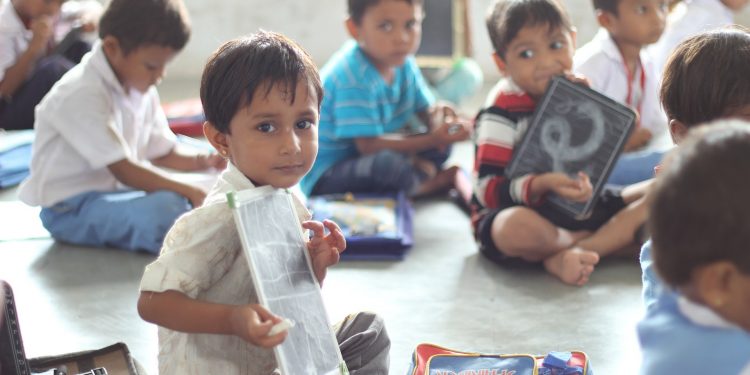Gurukulas to Virtual Gurus: The Future of Education in India

From having Gurukulas, where there was a true master – disciple relationship to new age classrooms which use virtual boards and other technologies, we have come a long way. The whole education system is undergoing a drastic change in terms of what is taught and how it is being taught. With the quality of education in India always coming under the scanner for its quality, how does the latest trends of online assignments, video lectures etc. impact it? It does seem like the future of education is going to be online, whether one likes it or not.
The Beginning
The concept of Gurukulas was one where the master and the disciples all lived together and the master would teach all that he knew to his disciples. Mostly, it was the knowledge of the various scriptures which was passed on through oral means, writing came only later on. Also, the disciples became proficient in various forms of household activities, since staying with the teacher also meant performing certain physical labour which meant it was a complete development of the student.
Fast forward to the present age, schools have teachers teaching many subjects to students, along with involving them in other cultural activities for the overall development as an individual. Why the shift to online education? The answer lies in the quality of the education imparted in our schools, especially those schools that are remotely located, the unavailability of trained teachers and accessibility to schools.
The Transition: How Can We Achieve This?
Already reskilling and online certifications are popular among the IT crowd to get further in their career, but reports suggest that the prominence would be on primary and secondary education going online in a few years. Infact an online research by google and KPMG predicts that, by 2021, the online primary and secondary education industry would be worth $773 million.
As per Jaideep Gupta,CEO & Founder of Univariety, “There will be an enormous change in the kinds of pedagogy utilised in schools. Teaching will happen in equal part, from experienced faculty as much as from machines, algorithms and simulations. “ That would mean schools would end up being a place where all the students could collaborate and share each other’s knowledge for enhanced learning and subsequently increase their employability.
Government has proposed to set up an Information and Communication Technology (ICT)-enabled education by having 350 online courses. This ensures that geographic accessibility and lack of qualified teachers don’t prove as a deterrent to achieve quality education.
The Effect
All this poses a very serious question which we must ask, Are we moving away from the deep rooted involved way of learning? Though the answer seems to be a loud ‘Yes’, what we need to understand is that we do not have enough resources to improve this due to lack of facilities and teachers. This in turn, brings us to the concept of each student being in his own classroom, the concept of ‘chromosomal’ personalized education which was Buckminster Fuller’s dream fifty years ago. A reality that is not far away now.
In conclusion, the movement to digital learning is inevitable. Since the influence of technology in all the fields is increasing every day, it is necessary to equip our students to handle this so that they are actually career ready and are able to bring in innovation to whichever area they choose to work on. We just need to make sure we do not make our children move into social isolation due to all this, just make learning a part of our life always as it should be.
[Image Attribute: akshayapatra]



